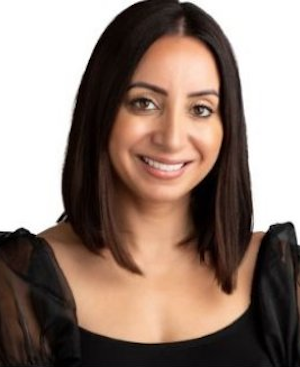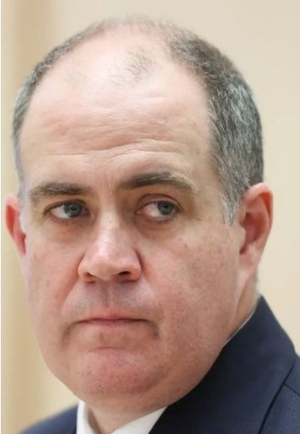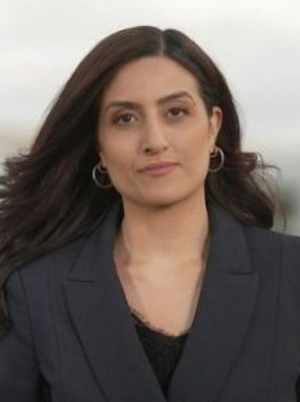By Binoy Kampmark
The Age has revealed the dismissal of ABC broadcaster Antoinette Lattouf last December 20 was the nasty fruit of a campaign waged against chair Ita Buttrose and managing director David Anderson.
The official reason for Lattouf’s dismissal was ordinary: she shared a post by Human Rights Watch about Israel “using starvation of civilians as a weapon of war in Gaza”, calling it “a war crime”.
It also noted the express intention of Israeli officials to pursue this strategy. Actions were also documented: the deliberate blocking of food, water and fuel “while wilfully obstructing the entry of aid”.

Lattouf shared it after management directed staff not to post on “matters of controversy”.
Prior to The Age revelations, much had been made of Lattouf’s fill-in role as a radio presenter — which was intended for five shows.
The Australian, owned by News Corp, had issues with Lattouf’s statements on various online platforms. It found it strange in December that she was appointed “despite her very public anti-Israel stance”.
She was accused of denying that some protesters had called for Jews to be gassed outside the Sydney Opera House on October 7. She also dared to accuse the Israeli Defence Forces of committing rape.
Leaked messages from a WhatsApp group called ‘Lawyers for Israel’ indicate that Australia’s public broadcaster – ABC – might have been lobbied into firing journalist Antoinette Lattouf.@meenakshirv reports. pic.twitter.com/1Nfl2kEDx6
— The Listening Post (@AJListeningPost) January 19, 2024
‘Lot of people really upset’
It was considered odd that she discussed food and water shortages in Gaza and “an advertising campaign showing corpses reminiscent of being wrapped in Muslim burial cloths”. That “left a lot of people really upset’,” The Australian said.

If war is hell, Lattouf was evidently not allowed to go into quite so much detail about it — at least concerning the fate of Palestinians at the hands of the Israeli war machine.
What has also come to light is that the ABC’s managers were not targeting Lattouf on their own. Pressure had been exercised from outside the media organisation.
According to The Age, WhatsApp messages by a group called “Lawyers for Israel” had been sent to the ABC as part of a coordinated campaign.
Sydney property lawyer Nicky Stein told members of that group to contact the federal Minister for Communications asking “how Antoinette is hosting the morning ABC Sydney show” the day Lattouf was sacked.
They said employing Lattouff breached Clause 4 of the ABC code of practice on “impartiality”.
Stein went on to insist that: “It’s important ABC hears from not just individuals in the community but specifically from lawyers so they feel there is an actual legal threat.”
No ‘generic’ response
She goes on to say that a “proper” rather than “generic” response was expected “by COB [close of business] today or I would look to engage senior counsel”.
Did such threats have any basis? Even Stein admits: “There is probably no actionable offence against the ABC but I didn’t say I would be taking one — just investigating one. I have said that they should be terminating her employment immediately.”
It was designed to attract attention from ABC chairperson Ita Buttrose, and it did.

Robert Goot, deputy president of the Executive Council of Australian Jewry and part of the same group, boasted of information he had received that Lattouf would be “gone from morning radio from Friday” because of her “anti-Israeli” stance.
There has been something of a journalistic exodus from the ABC of late.
Nour Haydar, a political reporter in the ABC’s Parliament House bureau and another journalist of Lebanese descent, resigned on January 12 citing concern about the ABC’s coverage of Israel’s war on Gaza.
There had been, for instance, the creation of a “Gaza advisory panel” at the behest of ABC news director Justin Stevens, ostensibly to improve coverage.
Journalists need to ‘take a stand’ over the Gaza carnage after latest killings
Must not ‘take sides’
“Accuracy and impartiality are core to the service we offer audiences,” Stevens told staff. “We must stay independent and not ‘take sides’.”
This pointless assertion can only ever be a threat because it acts as an injunction on staff and a judgment against sources that do not favour the line, however credible they might be.
What proves acceptable, a condition that seems to have paralysed the ABC, is to never say that Israel massacres, commits war crimes and brings about conditions approximating genocide.
Little wonder then that coverage of South Africa’s genocide case against Israel in the International Court of Justice does not get top billing on the ABC.
Palestinians and Palestinian militias, however, can always be described as savages, rapists and baby slayers. Throw in fanaticism and Islam and you have the complete package ready for transmission.
Coverage of the Israeli-Palestinian conflict in the mainstream media of most Western countries, as the late Robert Fisk pointed out, repeatedly asserts these divisions.
After her resignation, Haydar told the Sydney Morning Herald: “Commitment to diversity in the media cannot be skin deep. Culturally diverse staff should be respected and supported even when they challenge the status quo.”
#NoFearNoFavour https://t.co/JXq9TiI6Zu
— Antoinette Lattouf (@antoinette_news) January 16, 2024
Sharing divisive topics
Haydar’s argument about cultural diversity should not obscure the broader problem facing the ABC: policing the way opinions and material on war, and any other divisive topic, is shared with the public.
The issue goes less to cultural diversity than permitted intellectual breadth.
Lattouf, for her part, is pursuing remedies through the Fair Work Commission and seeking funding through a GoFundMe page, steered by Lauren Dubois.
“We stand with Antoinette and support the rights of workers to be able to share news that expresses an opinion or reinforces a fact, without fear of retribution.”
Kenneth Roth, former head of Human Rights Watch, expressed his displeasure at Lattouf’s treatment, suggesting the ABC had erred.
ABC’s senior management, via a statement from Anderson, preferred the route of craven denial. He rejected “any claim that it has been influenced by any external pressure, whether it be an advocacy group or lobby group, a political party, or commercial entity”.
Dr Binoy Kampmark is a senior lecturer in global studies at RMIT University, Melbourne. This article was first published by Green Left Magazine and is republished here with permission.
Article by AsiaPacificReport.nz





